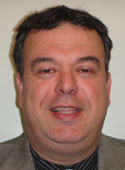By Micha Shalev
Society holds several myths about the elderly. Many of these myths may be easily disputed based on data from the U.S. Census and other studies.
Myth: Dementia is an inevitable part of aging.
 Fact: Dementia should be seen as a modifiable health condition and, if it occurs, should be followed as a medical condition, not a normal part of aging. In other words, if you or your loved one becomes forgetful, it could be related to medication, nutrition or modifiable medical issues. Don’t assume Alzheimer’s.
Fact: Dementia should be seen as a modifiable health condition and, if it occurs, should be followed as a medical condition, not a normal part of aging. In other words, if you or your loved one becomes forgetful, it could be related to medication, nutrition or modifiable medical issues. Don’t assume Alzheimer’s.
Just consider that when doctors examined the brain of a 115-year-old woman who, when she died, was the world’s oldest woman, they found essentially normal brain tissue, with no evidence of Alzheimer’s or other dementia-causing conditions. Testing in the years before she died showed no loss in brain function.
Not only is dementia not inevitable with age, but you actually have some control over whether or not you develop it.
Studies find that many of the same risk factors that contribute to heart disease — high blood pressure, high cholesterol, diabetes and obesity — may also contribute to Alzheimer’s and other dementias.
For instance, studies on the brains of elderly people with and without dementia find significant blood vessel damage in those with hypertension. Such damage shrinks the amount of healthy brain tissue you have in reserve, reducing the amount available if a disease like Alzheimer’s hits, said Dr. Conwell Powers, of UCLA Hospital in Los Angeles. That’s important, he said, because we’re starting to understand that the more brain function you have to begin with, the more you can afford to lose before your core functions are affected.
One way to dodge the dementia bullet? Exercise your body and your brain. Physical activity plays a role in reducing the risk of diseases that cause Alzheimer’s. It also builds up that brain reserve. One study found just six months of regular physical activity increased brain volume in 59 healthy but couch-potato individuals ages 60 to 79. Other research finds people who exercised twice a week over an average of 21 years slashed their risk of Alzheimer’s in half.
Then there’s intellectual exercise. It doesn’t matter what kind, just that you break out of your comfort zone. Even writing letters twice a week instead of sending e-mail can have brain-strengthening benefits, Powers said. That’s because such novel activities stimulate more regions of the brain, increasing blood flow and helping to not only build brain connections, but improve the health of existing tissue.
Myth: Life satisfaction is low among the elderly.
Fact: Data from the Berkeley Older Generation Study found that many elders are quite satisfied with their life. More than one-third (36 percent) of individuals older than 59 and 15 percent of those older than 79 said they were currently experiencing the best time in their lives. A 2009 survey found that 60 percent of individuals 65 years of age and older said they were very happy. Most of the factors that predict happiness for the young, such as good health and financial stability, also apply to the elderly.
Myth: Old people feel old.
Fact: According to a 2009 telephone survey, only 21 percent of individuals 65 to 74 years of age stated they felt old, and only 35 percent of those age 75 and older reported feeling old.
Micha Shalev, MHA, is the owner of Dodge Park Rest Home and The Adult Day Club at Dodge Park located at 101 Randolph Road in Worcester. The facility is holding two FREE support group meetings a month for spouses and children of individuals with dementia and/or Alzheimer’s disease. He can be reached at 508-853-8180 or by e-mail at m.shalev@dodgepark.com; view more information online at www.dodgepark.com. Archives of articles from previous issues can be read at www.fiftyplusadvocate.com.












